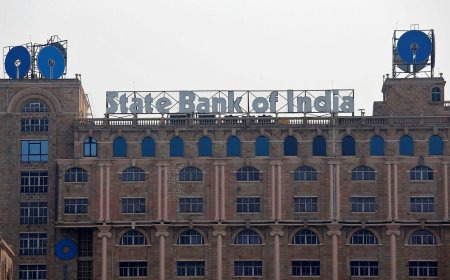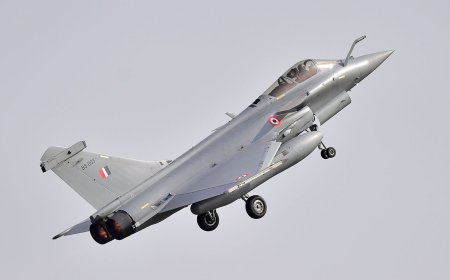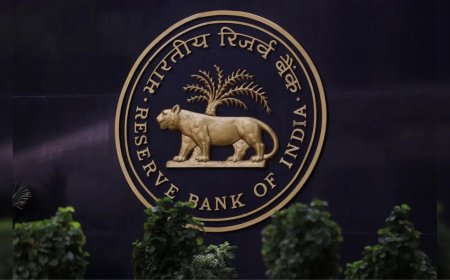Wall Street Futures trade flat as investors await Iran's response to US strikes
Wall Street futures trade flat as investors await Iran's response to recent US military strikes. Analysts highlight rising geopolitical risks and oil market volatility.

New York, June 23, 2025 — Wall Street futures remained largely unchanged in early Monday trading as investors braced for geopolitical developments following U.S. military strikes in the Middle East. With tensions escalating between Washington and Tehran, traders exercised caution, awaiting Iran’s official response amid concerns of broader regional instability.
Geopolitical Concerns Keep Markets in Check
The muted movement in equity futures comes on the heels of U.S. airstrikes over the weekend targeting Iranian-backed militia facilities in Iraq and Syria. These strikes were described by the Pentagon as "defensive actions" in response to drone and rocket attacks on American personnel in the region.
As of 6:00 AM ET:
-
Dow Jones Industrial Average futures were down 0.04% (16 points),
-
S&P 500 futures edged lower by 0.03%,
-
Nasdaq 100 futures showed minimal change, down 0.01%.
The flat trajectory reflects investor uncertainty as Iran’s leadership convenes an emergency meeting of its Supreme National Security Council to decide on the country's next course of action. While no official statement has been released, Iranian state media hinted at a “strategic and calibrated response.”
Market Volatility and Risk-Off Sentiment
The global financial landscape remains fragile, with investors fleeing to safe-haven assets such as gold and U.S. Treasury bonds. Gold prices climbed above $2,370 per ounce, while the 10-year Treasury yield dipped to 4.06%, reflecting increased demand.
“There’s a high level of geopolitical risk being priced into the markets right now,” said Anya Lonsdale, senior global strategist at Merrill Asset Management. “Investors are trying to figure out whether this becomes a tit-for-tat situation or is contained diplomatically.”
Lonsdale noted that past flashpoints involving Iran have had short-term impacts on markets, but this time may be different given the involvement of critical shipping lanes and energy infrastructure.
Oil Prices React Sharply
The energy sector saw the most immediate response. Brent crude surged over 2.1% to $89.75 per barrel, while WTI crude climbed 1.8% to $85.10 per barrel, as traders priced in the risk of supply disruption in the Strait of Hormuz — a vital chokepoint for global oil shipments.
“The market's knee-jerk reaction is warranted,” said David Rosenfeld, energy analyst at Intercontinental Commodities. “Any escalation from Iran — particularly if it involves naval operations — could restrict the flow of oil and raise prices globally. This adds pressure on central banks already struggling with inflation.”
Tech and Financials Under Scrutiny
Despite the geopolitical tension, major tech names like Apple, Microsoft, and Alphabet saw only marginal movement in pre-market trading. Financial stocks, however, showed signs of pressure, with JPMorgan Chase, Bank of America, and Citigroup all ticking slightly lower.
“Investors are moving away from cyclicals and into defensive positions,” explained Meera Khurana, head of equities at Lancer Capital. “There’s concern that if the situation spirals, we could see a broader market correction.”
The VIX volatility index, commonly referred to as Wall Street’s "fear gauge," rose by 5.7% to 17.5, indicating growing nervousness among investors.
Broader Market Context
The subdued movement in futures also follows a mixed week for Wall Street. The S&P 500 ended last Friday down 0.2%, while the Dow rose slightly by 0.15%, and the Nasdaq Composite dropped 0.4%. The pullback came after a strong rally earlier in the month on expectations that the Federal Reserve would pause interest rate hikes.
However, with the geopolitical narrative taking center stage, monetary policy discussions have temporarily faded into the background.
“Central banks are now on watch,” said Edward Bolan, a macroeconomist at Charter Hill Research. “If tensions escalate and oil prices surge past $100 per barrel, inflation expectations will need to be re-evaluated.”
Investor Outlook: Eyes on Tehran
Going forward, market direction will largely hinge on Tehran’s response. Analysts suggest that a restrained or diplomatic reaction could ease pressure and even spur a relief rally, while a military escalation could send global markets into a tailspin.
“In the near term, markets are in limbo,” added Lonsdale. “Portfolio managers are holding off on major decisions until clarity emerges from Tehran. This is not the time for bold bets.”
Meanwhile, investors are advised to watch defense stocks, energy companies, and gold ETFs for relative strength during this period of uncertainty.
As the world awaits Iran’s next move, Wall Street is holding its breath. The flat trading in futures is a reflection of a market caught between strong earnings fundamentals and rising geopolitical fears. Until there’s more certainty, especially from Tehran, investors may continue to prioritize capital preservation over aggressive risk-taking.
What's Your Reaction?
 Like
0
Like
0
 Dislike
0
Dislike
0
 Love
0
Love
0
 Funny
0
Funny
0
 Angry
0
Angry
0
 Sad
0
Sad
0
 Wow
0
Wow
0












































































